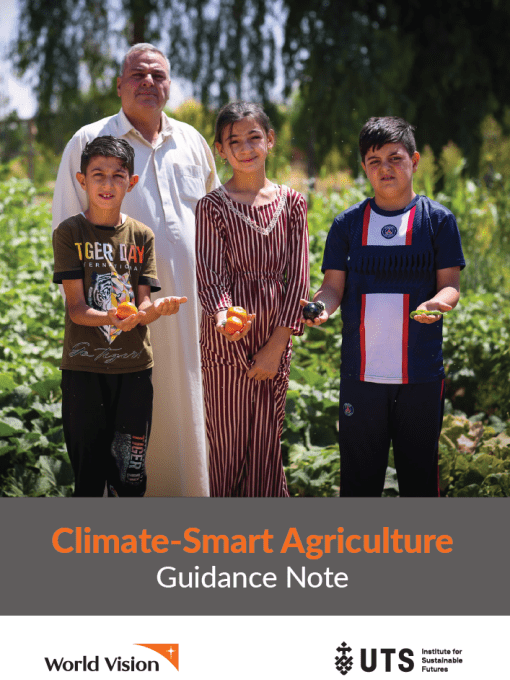Climate-Smart Agriculture Guidance Note
Download
Climate change has been reducing crop yields, affecting the nutritional quality of major cereals. We are also in the midst of an unprecedented global hunger crisis. Sustainable agriculture, particularly Climate-Smart Agriculture (CSA) can be part of the solution. It can be harnessed to minimise and even soak up emissions and mitigate climate change. CSA can also build resilience by helping smallholder farmers and vulnerable communities adapt to the impact of climate change and be better prepared for future shocks.
Based on our experience, for CSA activities to be successful for the benefit of the communities and children, the following considerations should be taken:
- Diverse actors in the food system need to be involved in CSA design and implementation
- Allowing contextual factors and local priorities to guide the design of CSA activities
- Embedding gender equality, disability, and social inclusion throughout CSA activities
- Integrating Anticipatory Risk Management in CSA
- Taking a holistic systems perspective to CSA
World Vision's guidance note on CSA explains it can be linked to Regreening Communities and Livelihoods activities.
Share



